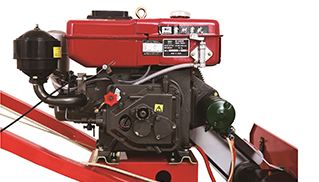Jul . 28, 2024 05:19 Back to list
Step-by-step Guide to Efficiently Replace Your Vehicle's Brake Drums for Optimal Performance
How to Replace Brake Drums A Step-by-Step Guide
Brake drums are essential components of a vehicle's braking system, especially in older cars and many trucks. They play a crucial role in stopping the vehicle by maintaining friction with the brake shoes when the driver applies the brakes. Over time, brake drums can wear out due to heat, friction, and environmental factors, leading to decreased performance and safety issues. If you notice signs of wear, it’s important to replace them promptly. Here’s a step-by-step guide on how to replace brake drums.
Tools and Materials Needed
Before starting, ensure you have the following tools and materials on hand - Jack and jack stands - Lug wrench - Brake drum puller (if necessary) - New brake drums - Brake shoes (if required) - Brake cleaner - Torque wrench - Safety glasses and gloves
Step 1 Safety First
Start by parking the car on a flat surface and engaging the parking brake. Before you begin working, put on your safety glasses and gloves to protect yourself from dirt and debris.
Step 2 Loosen the Lug Nuts
Using a lug wrench, loosen the lug nuts on the wheel covering the brake drum you need to replace. Don’t remove them completely yet; just loosen them enough so they can be easily taken off once the vehicle is lifted.
Step 3 Lift the Vehicle
Place the jack under the vehicle’s jacking point (consult your vehicle manual for exact locations) and raise the vehicle until it’s high enough for you to work underneath. Once lifted, securely place jack stands beneath the vehicle to ensure it is stable and will not fall.
Step 4 Remove the Wheel
Now, remove the loosened lug nuts completely and take off the wheel to expose the brake drum. Keep the lug nuts in a safe place as you will need them later.
Step 5 Remove the Brake Drum
how to replace brake drums

In many cases, the brake drum will slide off easily. If the drum is stuck due to rust or wear, you may need a brake drum puller to help remove it. Follow the manufacturer’s instructions for using the puller. Once removed, take a moment to inspect the condition of the brake shoes and other brake components.
Step 6 Replace the Brake Shoes (if necessary)
If the brake shoes also show signs of wear, it’s advisable to replace them at this time. Remove the old brake shoes and install the new ones according to the manufacturer’s instructions. Make sure to properly adjust them to ensure optimal contact with the drum.
Step 7 Install the New Brake Drum
Now, take the new brake drum and carefully slide it over the wheel hub. Ensure it fits snugly and rotates freely without obstruction. If you had to adjust the brake shoes, ensure they are properly seated against the new brake drum.
Step 8 Reattach the Wheel
Place the wheel back onto the hub and align it with the lug bolts. Hand-tighten the lug nuts initially, and then use the torque wrench to tighten them to the manufacturer’s specified torque settings. This ensures the wheel is securely fastened.
Step 9 Lower the Vehicle
Carefully remove the jack stands and lower the vehicle back to the ground using the jack. Once the vehicle is back down, take a moment to re-check the tightness of the lug nuts.
Step 10 Test the Brakes
Before driving, pump the brake pedal several times to ensure that the brake shoes seat properly against the drum. Test the brakes at low speeds to ensure everything functions smoothly and safely.
Conclusion
Replacing brake drums is a relatively straightforward task that can improve your vehicle’s braking performance and safety. Always refer to your vehicle's service manual for specific instructions and safety guidelines related to your particular make and model. If you’re ever in doubt, don’t hesitate to consult a professional mechanic. Regular maintenance of your braking system is vital, not only for performance but also for your safety on the road.
-
Brake Drum Man - High-Quality Drum Brake Drums & Brake Shoes for Reliable Performance
NewsJun.24,2025
-
High-Quality Brake Drum Kamaz – Durable Drum Brake Drum & Brake Shoe Replacement
NewsJun.10,2025
-
High-Quality Brake Drum Liza for Drum Brake Systems - Superior Durability and Performance
NewsJun.10,2025
-
High-Quality Brake Drum Kamaz – Durable Drum Brake Drum & Brake Shoe Solutions
NewsJun.10,2025
-
Durable Kamaz Brake Drums High-Performance Truck Parts
NewsJun.09,2025
-
Premium Brake Drum Maz Kit with Shoes Enhanced Braking
NewsJun.09,2025
